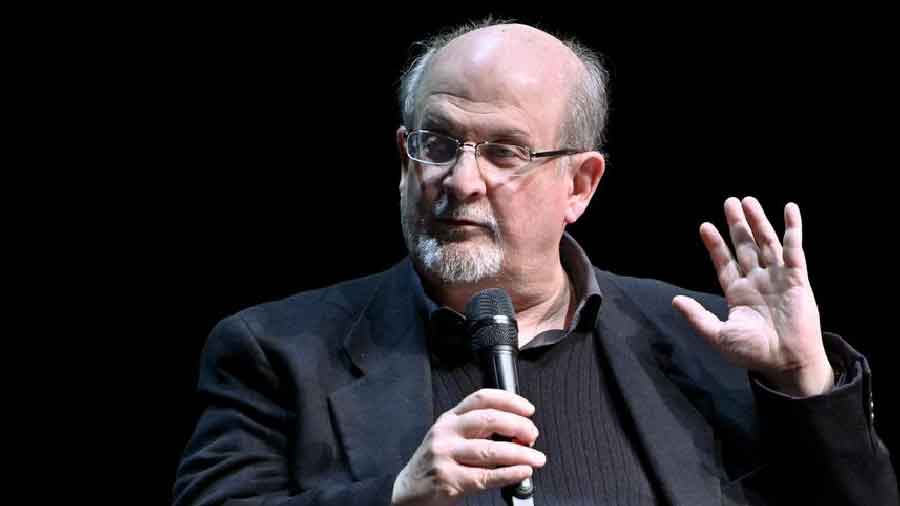Salman Rushdie was 41 and living in the Islington neighbourhood of London when the fatwa was issued. He fled his home and moved from one hide-out to the next over the next several years.
A British citizen, he received 24-hour protection from the government for nine years, provided by the “A” Squad of the special branch of the Metropolitan Police.
In 2012, years after he had returned to society, he released a memoir about his experience called Joseph Anton.
The book got its title from the pseudonym he used while in hiding, composed of the first names of the authors, Joseph Conrad and Anton Chekhov.
As a man who made people up for a living, he wrote, he had “turned himself into a sort of fictional character as well”. His security detail took to calling him “Joe”, which they found easier to remember.
Rushdie hated it.
Reviewing the memoir, The New York Times critic Michiko Kakutani said Rushdie’s experience was a “nightmare weirdly like something out of one of his own surreal novels and underscored the very themes he’d been grappling with for years in his fiction: namely, the emotional costs of exile and being cut off from one’s past; the consequences of globalization and the cultural clash between East and West; and the increasingly phantasmagorical nature of contemporary history”.
In the book, Rushdie describes the claustrophobia of his early years in hiding, moving from the house of one friend to the home of another, and the “constant need to find the next place to live”.
Later, he lived in a rented house with “four enormous armed men”, his two protection officers and two drivers, who were “the polar opposites of bookish, indoorsy types.”
He had to schedule mundane activities such as going for a walk, and he was required to hide in a bathroom whenever a housekeeper came to tidy up.
The stress and physical circumstances made it difficult to write, but he managed. During his time secreted away, he wrote a significant novel, The Moor’s Last Sigh, and a children’s book titled Haroun and the Sea of Stories.
He also wrote book reviews, essays, poems and short fiction.
Completing The Moor’s Last Sigh felt like a “victory over the forces of darkness”, he wrote. “Even if they killed him now they could not defeat him. He had not been silenced. He had continued.”
New York Times News Service











